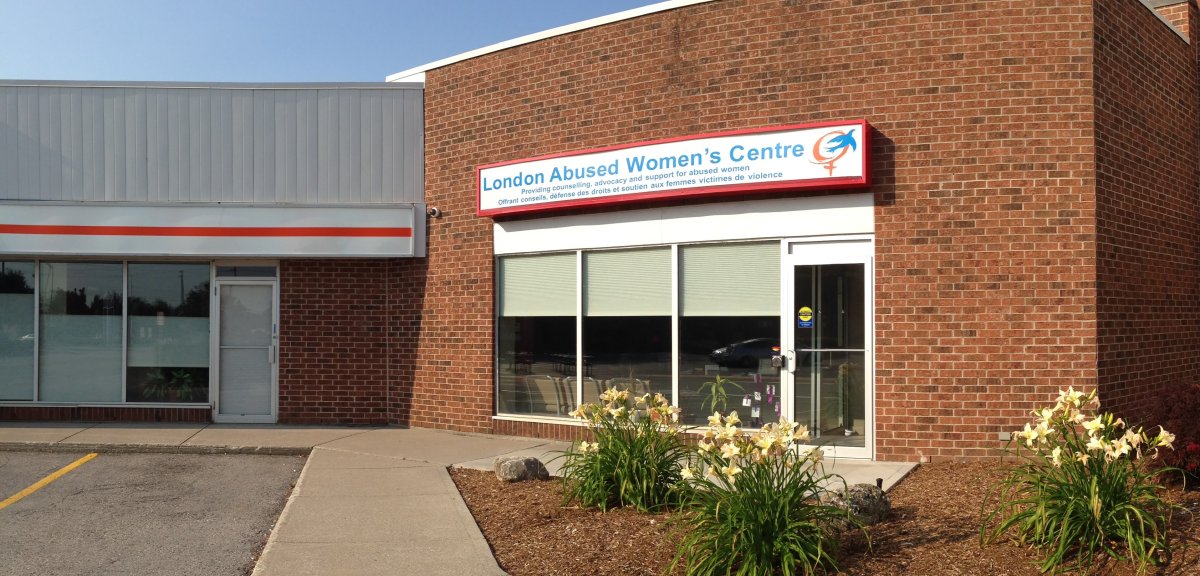Officials with the London Abused Women’s Centre (LAWC) say they’ve seen an alarming surge in demand for their services over the course of the COVID-19 pandemic, highlighting the reality of what the United Nations has described as a “shadow pandemic” of violence against women and girls during the global health crisis.

The organization says it helped at least 9,235 women and girls during its most recent fiscal period, which ran from April 1, 2020 to March 31, 2021, marking an increase of about 16 per cent compared to the fiscal year previous.
According to LAWC, the figure includes 5,400 calls for service and 3,835 people who accessed individual and group support.
More distressingly, the agency’s Urgent Services Support Program, which provides women and girls with immediate access to LAWC’s services for urgent needs, recorded a 45 per cent increase in demand for service over the same time period.
“It’s quite alarming to see these numbers come in. We know that we have been busy, and we know that more women have been coming through our doors and the phone has been ringing a lot more,” Jennifer Dunn, LAWC’s associate executive director, said during an interview with 980 CFPL’s Jess Brady on Friday.
“A 45 per cent increase is very huge over the course of a year, but not surprising given everything that’s going on.”
The agency says it also helped 820 trafficked, prostituted and sexually exploited women and girls. London has been identified as a hot spot for sex trafficking due to its proximity to Highway 401, according to LAWC.
“Every year we run our Shine the Light on Woman Abuse Campaign, and it’s really important for women and girls to know that they’re not alone,” Dunn said, adding that the COVID-19 pandemic has made things all the more difficult.
“You can’t just go over to a friend’s house. You can’t just talk to somebody in confidence, or something, because you can’t even get close to someone. Creating that public awareness and (letting) people know… there’s a place that they can go or can call, really and truly does make all the difference.”

LAWC says it remains focused on providing service to women and girls who reach out to the agency, and adds that community support and additional funding has allowed the agency to bring on four additional staff members to provide front-line services and meet demand.
“It’s very important to us to make sure that any woman or any girl who needs support gets support immediately,” Dunn said, noting LAWC continues to operate with a no-wait-list policy.
“The second that somebody reaches out, sometimes it’s the only chance they get, especially with the pandemic… people are at home, which means women are potentially stuck in the house with their abuser.
“There’s no real opportunity for them to go or come to the centre or make a phone call privately. Somebody might always be around. So to have the ability to be there and have the staff and us there to be able to answer the phone in case it’s that only chance that they get is vital.”
In a follow-up email, Dunn noted that it has also been harder for trafficked women to access LAWC’s services, and that it’s been “impossible” for LAWC staff to access women housed at EMDC because of COVID-19 restrictions.
The disturbing rise in calls for service related to domestic abuse and violence has also been seen elsewhere across Ontario.
The Assaulted Women’s Helpline (AWHL) says it received roughly 93,444 calls to its crisis line during its most recent fiscal year, which ran from April 1, 2020 to March 31, 2021, spanning most of the pandemic
In comparison, the fiscal year prior saw 50,648 calls to the crisis line, said Yvonne Harding, AWHL’s manager of resource development.
“Pre-COVID, our counsellors were answering just shy of 50,000 calls annually,” Harding said in an email.
The United Nations and the World Health Organization have dubbed violence against women and girls a “shadow pandemic” as the COVID-19 crisis fuels social isolation and tensions caused by concerns over health, safety and financial security.
— With files from The Canadian Press
Information, community resources and support related to sexual assault and domestic violence are available here. Information on shelters, transitional housing and drop-in centres for women can be found here.
London police offer online information in relation to sexual assault can be found here. Information specific to human trafficking from the London Police Service can be found here.








Comments